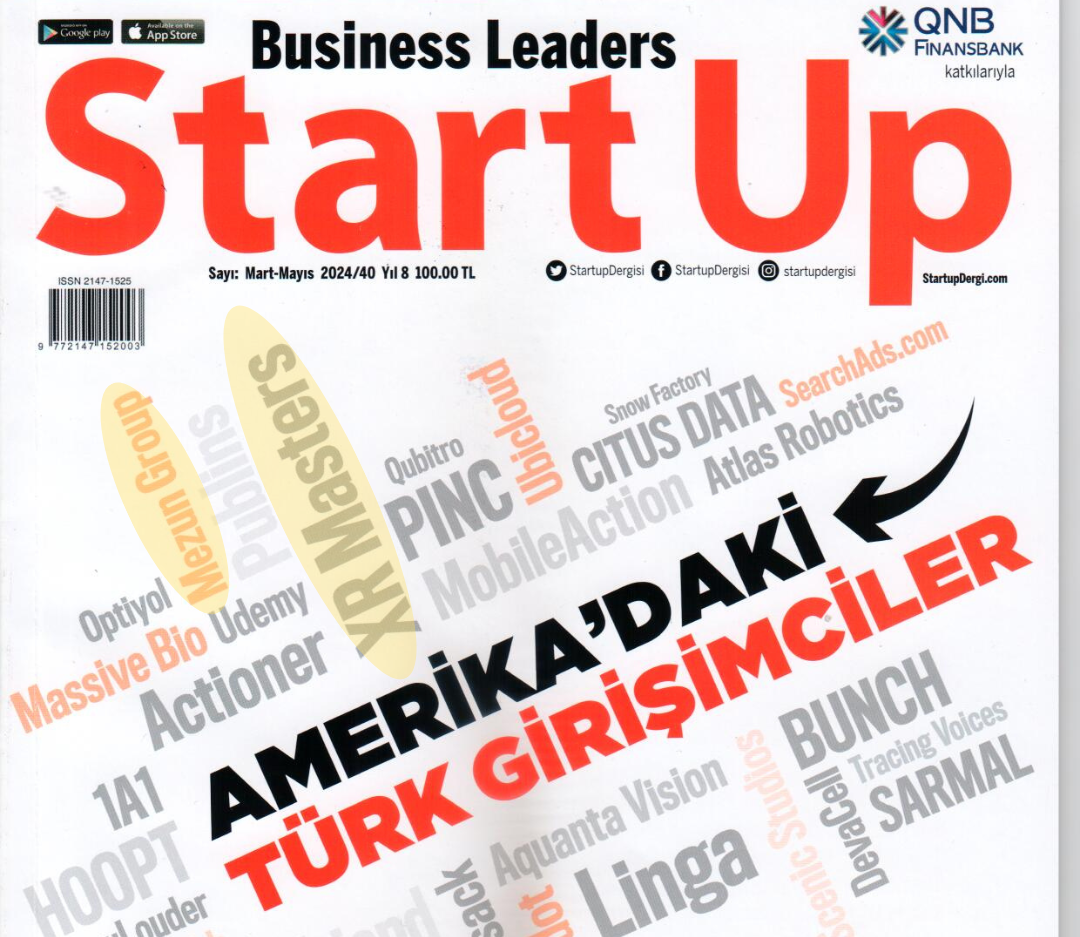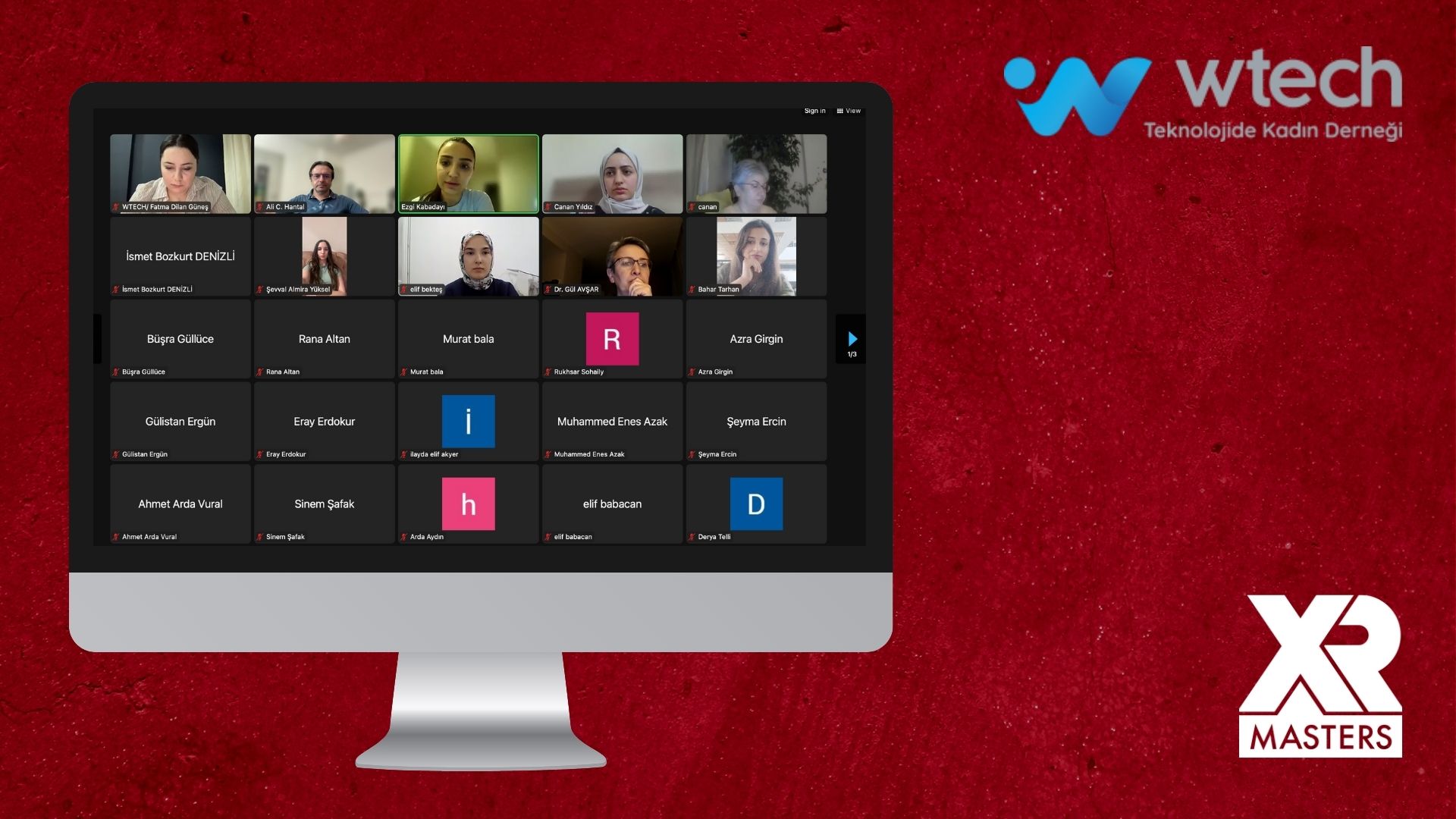Interview on Dijital Ekonomi
Click here to view the full piece in Turkish on Dijital Ekonomi
Ali Cumhur Hantal aims to set the standards: Metaverse, or Multiverse?
Ali Cumhur Hantal, founding member of Turkey’s first Metaverse Association, clarifies what Metaverse means, which we encounter in every aspect of our lives.
XR Masters CEO and International Open AR Cloud (OARC) Association Test Bed Coordinator Ali Cumhur Hantal states that currently existing experiences should generally be called Multiverses as experiences belonging to different Metaverses rather than a ‘Metaverse’.
This new Metaverse era, which is defined as the future of the internet, education, tourism, culture, commerce and even human communication, will undoubtedly change a lot, in which people will interact and communicate with other people and three-dimensional objects in the three-dimensional beyond. However, instead of calling the currently existing experiences a ‘Metaverse’ experience in general, it would be more accurate to call them experiences belonging to different Metaverses or Multiverses.
We can compare today’s Metaverse applications to the intranet, which was the starting point of the internet in the past. After the concept of Metaverse was introduced, everything virtual or augmented began to be defined as Metaverse. Although there is no consensus yet, experts state that for an experience to be called a true Metaverse experience, it must first be experienced by multiple users simultaneously. In an AR cloud-based Metaverse, it will be possible to talk about a “Metaverse” instead of multiverses, thanks to the fact that an AR object placed on the real world can be displayed in another Metaverse in the same place and in the same way with the approval of the user.
Real World Metaverse = AR Cloud
Metaverse can be technically experienced in two different ways, one based on Virtual Reality and the other based on Augmented Reality Cloud. In the Virtual Reality-based universe, users enter fully simulated meta-universes through Virtual Reality glasses or two-dimensional screens. In Augmented Reality Cloud-based universes, also defined as Real World Metaverse, users can experience an experience where the real universe and the virtual universe are intertwined with the Augmented Reality Cloud Headsets with Mobile Augmented Reality Cloud applications or Augmented Reality Cloud glasses. They enter a universe that is fully integrated with the virtual environment, without breaking away from the real space they are in, and they can experience the virtual and the real simultaneously, interact with each other. They are able to establish meaningful relationships with real location-based, face-to-face contacts.
Metaverse standards are set by the organization that approves the Google Maps standards
In order for Multiverses to be a Metaverse and accessible to everyone, first of all, there must be a Metaverse infrastructure and global standards and protocols must evolve. Open Augmented Reality Cloud Association, which has been working for 2 years to create these standards and protocols, an international team of 12 people, including XR Masters CEO Ali Cumhur Hantal, are working on together with more than 300 members of the association, to develop Metaverse standards and protocols.
The standard developed by Open AR Cloud, which is authorized by the Open Geospatial Consortium, one of the top organizations in this field, which has made the standards used by Google in two-dimensional maps accepted all over the world, is currently in the approval phase. If this Geopose standard is one day used by all multiverses in existence, these multiverses will be interoperable and able to talk to each other. Thus, content in one Metaverse will be viewable in other Metaverses.
Open Source Code aims to democratize the Real World Metaverse
XR Masters team, which has signed many important projects in the field of software for more than twenty years and provides information technology strategies to global companies, has been doing R&D studies and software developments on Metaverse technologies for the last 7 years. The company is also among the top 500 companies to write apps for Microsoft Hololens, the world’s first mixed reality glasses. XR Masters, which was established in Silicon Valley in 2015 to develop Extended Reality solutions, today carries out its R&D and innovation studies with the world’s leading companies such as Microsoft, IBM and Ernst & Young.
Thanks to the Metaverse Content Management Platform developed by XR Masters, users can create permanent and shareable Augmented Reality Cloud experiences in Metaverse without the need for any coding knowledge. The Open AR Cloud Association, to which XR Masters made the first code donation, aims to democratize the Real World Metaverse with open source code. With this open source code, which is worked on by all leading universities, especially XR Masters and Open AR Cloud, MIT and Stanford, campuses have already begun to be scanned.
He aims to add Turkey to the metaverse map
Aiming to scan the whole of Turkey and make a digital copy of it and add it to the Metaverse map, XR Masters plans to produce content about daily life in our country thanks to the technology it has developed, and to transfer the historical and cultural heritage to future generations through special platforms that can be provided in the new universe. With the agreement of Ankara Metropolitan Municipality, which uses XR Masters infrastructure, with the Open AR Cloud Association, the city of Ankara became the fourth test city of Open AR Cloud in the world, after Los Angeles, Bari and Helsinki.
XR Masters has The First Metaverse Content Management Platform Using the Geopose Standard
XR Masters, which has the first Metaverse Content Management Platform that uses the Geographical Positioning (Geopose) standard developed by the Open AR Cloud Association, also licenses this technology to its corporate customers. Thanks to the XRM Metaverse Content Management Platform developed by XR Masters in accordance with this standard, Augmented Reality content can be placed on both indoor and outdoor spaces and permanently, unlike GPS-based experiences. can be experienced. Compatible with Apple and Android devices, the platform will soon support Mixed Reality glasses such as Hololens, Magic Leap and NReal.




